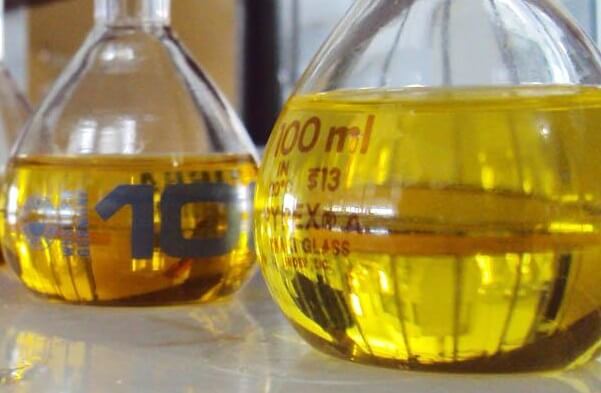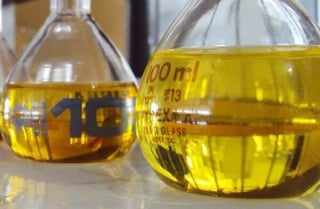Stored Fuel Testing Part 3: The needs of your business
As a service to our customers, dealers and friends, Bell Performance hosts quarterly webinars on fuel topics of interest to their friends and their...

As a service to our customers, dealers and friends, Bell Performance hosts quarterly webinars on fuel topics of interest to their friends and their customers. This is a transcript of one of these recent webinars held on The Fuel Tests You Need to Know About. We will be publishing it as a three-part series. If you would like to watch the archived presentation, please click here.
This webinar was presented by Erik Bjornstad, Bell Performance technical information director.
 This is the second of our quarterly webinars although we're starting it at the start of the third quarter and topic is the fuel tests that you need to know about. I am Erik Bjornstad. I'm Technical Information Director here at Bell Performance. We've been in business for a long time. We have a lot of relationships and we've done a lot of services and business with entities that use stored fuel and given how important that stored fuel is to their business, to the people who are our customers, we find it's really important to stay on top of the best practices that are recommended to keep that fuel healthy and viable and ready to go. That's what we wanted to do in today's topic - stored fuel testing, because that's a really critical piece of the puzzle. And so by the conclusion of our time together today, what we're going to aim to do is we want to make you more familiar with stored fuel and how important stored fuel testing is. We're going to start with context.
This is the second of our quarterly webinars although we're starting it at the start of the third quarter and topic is the fuel tests that you need to know about. I am Erik Bjornstad. I'm Technical Information Director here at Bell Performance. We've been in business for a long time. We have a lot of relationships and we've done a lot of services and business with entities that use stored fuel and given how important that stored fuel is to their business, to the people who are our customers, we find it's really important to stay on top of the best practices that are recommended to keep that fuel healthy and viable and ready to go. That's what we wanted to do in today's topic - stored fuel testing, because that's a really critical piece of the puzzle. And so by the conclusion of our time together today, what we're going to aim to do is we want to make you more familiar with stored fuel and how important stored fuel testing is. We're going to start with context.
We'll talk about how important stored fuel is for different kinds of customers across the B2B spectrum.
We'll talk about where this concept of fuel testing fits in with them relative to how they use the stored fuel, what they use it for, what value does testing of stored fuel bring to these different kinds of users relative to what they do.
Then we'll get into some specifics. What are the tests that are recommended for these people to pay attention to? What are those tests going to show? How are they run? What do they mean?
Then lastly, we'll tie it all together for each test by talking about what potential action steps or action items does a negative test infer that they should do in order to fix whatever problem it indicates might be on the horizon for them.
Let's start off our discussion with a consideration of stored fuel itself. If today's fuels were not substantively different from yesterday's fuel, we probably would not be having this kind of discussion that we're having today.
Also, we're primarily going to be talking about diesel fuel because we're not really going to touch that much on stored that's an all gasoline because diesel fuel makes up the vast majority of the stored fuel pool, so to speak.
When you're talking about how diesel fuel has changed, you're talking about three major areas. You're talking about the reduction in the sulfur content, first of all. You're talking about other changes to the petroleum fuel composition and then you're talking also about the growing presence of biodiesel.
When you bring up sulfur content, we all know that ultra low sulfur diesel became the default, law of the land around 2007 or so. If you take sulfur out, diesel fuel makes it more environmentally friendly to be sure, reduces sulfur gases linked to acid rain, makes the emissions cleaner and better also for the advanced emissions control systems that are now putting much standard on the newer diesel engines. They do not like excess sulfur content in the emissions. Around 2007, they capped sulfur content at 15 ppm.
Second thing, when talking about change in the fuel composition, you're talking about reduction in aromatic content. Aromatic content is one of the kind of fuel streams that refineries can use to make up, when they're blending the fuel, the final fuel blend. They can vary the aromatic content in order to make sure that fuels specs and properties are what it's supposed to be and they know that if they reduce the aromatic content, they tend to get cleaner emissions so that was also part of the mandate. Lower the aromatic content, help the emissions become cleaner.
Then the third major change we're talking about biodiesel, most diesel fuel today has at least 5% that biodiesel content. A number of reasons why this came to be so, some of them, there's always the political angle with this, with the renewable fuels angel. Some of it was environmental because biodiesel burns cleaner and has fewer harmful emissions so the fuel is better for the environment. Three major ways that fuels change, but as is with many things, for all the benefits that they got for making those changes, you got some unintended and unavoidable consequences that went along with it.
That's why we say that when we're talking about this, the benefits did not come without a price a tag and the price tag that we're talking about is a concurrent change in the fuel's ability to have certain kinds of problems.
So those three main areas of change and three main problem areas that we have to consider here. We're talking about microbial activity in the fuel. We're talking about water presence and fuel stability.
First one, today's diesel fuels are significantly more prone to developing microbe problems than the fuels of decades past because both sulfur content and aromatic content tended to inhibit microbial growth. You take those out, you make it easier and more hospitable for microbes to grow in that fuel and in that storage tank, and so when you're saying today's fuel are more prone to microbe problems, that means they're more prone, well, when you say they're more prone to have microbial presence, that means they're more prone to the problems that, that presence brings along with it. Some of those problems are can be relatively minor, like more filter plugging for example.
Some of them can be pretty major when you're talking about tanks, major storage tank corrosion damage and degradation of the stability of the fuel. Beyond the fuel specific problems, microbes themselves can be a pretty difficult problem to get rid of because of the nature of a microbial infestation, they can spread pretty easily from place to place and if you don't know you have a microbial infestation, that makes it even worse because you'll be spreading it unwittingly. That's the first one.
Second one, talking about the reduction of the sulfur and the creation of ultra low sulfur diesel, it has made a diesel fuel that attracts and holds water more so than in times past. Some of it is due to the biodiesel content. Some of it's due to the inherent nature of ULSD itself. Anytime you have a fuel blend that attracts and holds more water, then you'll have more water related problems that can result like microbial growth again, and of course, tank corrosion.
Both of these problems, microbial presence and water presence, both of those contribute to an overall reduction in the storage stability of the fuel, the third one that we mentioned, along with another factor, which is played in, the greater use of cracked fuel stocks. Refineries have had to use more and more cracked fuel stocks in order to meet their volume quotas and cracked fuel stocks make the fuel inherently more unstable than fuels in the past.
Next, we have to consider the effects of the problems and how much they impact the different groups that use the fuel. Mainly, we're talking about B2B groups here. We're talking about groups that either store fuel to use it themselves to get business done or a group set server customer base that relies heavily on stored fuel and fuel storage tanks. In that case, we'd be talking about service entities. The kinds of groups we're talking about, we're talking about state and local municipalities or what we would term government entities. We're talking about hospitals and healthcare facilities. They rely a lot on stored fuel.
Talking about fuel service providers, so these providers that go out, they clean tanks, they mechanically process fuel. You've got both backup generator owners and the service companies for those generators. Then you've got this non-retail fuel user group that really can cover a whole range of entities everyone from like telecom, groups that manage servers and information technology to private planes like FedEx. FedEx and UPS delivery services would be non-retail fuel users that use stored fuel. For each of these groups, stored fuel plays a pretty important role in their business and so when you're talking about fuel testing, fuel testing's going to bring a certain amount of value to each one of these groups.
Government and municipal users, what do they do? Well, whether you're talking about a county entity or a city entity, typically they're charged with providing the basic services that the residents rely on being provided in exchange for the tax revenue that they pay so you're talking about stuff like sanitation, water utilities, you're talking about street and infrastructure maintenance, fire departments, police that kind of stuff.
Government and municipal users, they rely on stored fuel to execute those functions like a police station might have emergency backup generators that kick on during emergencies to make sure that the police station and the call centers still has power so for these groups, preserving the health of the stored fuel is pretty important because if it fails and they're not able to do what they need to do at all times, then they fail their constituents and that's serious trouble. One of the big benefits of fuel testing for government groups is it can help them monitor and stay ahead of any possible changes in the condition of the stored fuel so that they are not caught off guard.
Speaking of having to provide services at all times, hospitals and healthcare facilities, right? Their constituents are their patients and so hospitals and healthcare facilities are required to have backup generators and they require to have stored fuel that meets certain specifications at all times.
If their stored fuel fails and their backup generators fail, well, then you get situations like what happened with back with Hurricane Katrina, with Superstorm Sandy, when there were hospitals whose generators failed and they were not able to provide the care that they needed to at a really critical time and so you have regulatory agencies like AHCA, which they oversee making sure that these hospitals do what they need to do. AHCA has certain requirements for hospitals and healthcare life for example, they require, hospitals require to test backup generators at least once month and run them for at least 30 minutes. They have to do that. They're also required, with respect to fuel testing. They have to have paperwork that shows that on an annual basis, their stored fuel meets the ASTM D975 requirement, which is the basic diesel fuel specification requirement. Basically, they have to verify that their fuel is spec at least once a year.
Fuel service providers, that's the third major group.
Now they're a little bit different from hospitals and from government, in that they don't have stored fuel themselves that they take care of. Their service revolves around taking care of the fuel of other people and so a typical thing that they would do is they would service another person's tank and fuel by doing fuel filtering to remove particulates and contaminants from the fuel. They would take out water. They would apply treatment chemicals to fuel either before, during or after service and then many of them would actually do actual tank cleaning itself as well. For the people who are their customers, they engage the services of a fuel service provider because they need to get rid of an existing problem that they detected in their fuel and they want to make sure that, that fuel is improved or setup so that it's not going to have problems in the future and so that's what the fuel service provider is expected to do.
What that means is that if the customer has a fuel problem and it manifests itself in some undesirable way for that customer, who's going to get blamed for that?
Well, the customer's not going to look at themselves and say, "Oh, I should've taken better care of my fuel." No, they're going to blame the fuel service provider because that's what the customer expected the fuel service provider to do, so where does fuel testing fit in for these people? Well, one of the things that it can do is that it can help a service provider, let's say differentiate themselves from the less credible operators. We'll just be diplomatic and say the less credible operators in their industry because there are plenty of those. A fuel service provider can use a before and after fuel testing to show their customer that their fuel improved in a meaningful way and that it was objectively measured so that the customer doesn't have to take their word for it, they can see that their fuel specifications have changed in a positive way and that's good.
Fourth group, generator owners and service companies.
Lots and lots of people, and we can probably roll non-retail fuel users into this even though not only non-retail fuel users are strictly generator people, but there are lots of different entities that have backup generators, like we already implied the hospitals have them, but you've also got grocery stores, you've got data centers, telecom, a large telecommunication companies like Verizon and Sprint have backup generators with their cell towers and they all have stored fuel. Now we would call these groups kind of like mission critical entities and for the bulk of these groups, their primary business isn't making sure their generator and its fuel's okay. Their primary business is selling groceries or delivering packages or making sure that the cell towers stay on line. That's their primary business and so what they do is they rely on service companies to keep the generators in prime shape and so those service companies, what they also need to do is they need to pay attention to the fuel as well.
Just like we talked about earlier, if the generator fuel's gone bad because it hasn't been checked for years by the customer, if it goes bad and their generator fails and that company's not able to do the business it needs to, the company is not going to look at itself. They're going to look at the service company and they're going to say, "You guys didn't do what you needed to do." Even if it's not really the service company's fault. So the question that follows here for all of these groups, all of these stored fuel users, is what are the fuel tests that they should do? What should they consider? Fuel testing obviously has potential, great amount of potential value for each of them, but it's a broad subject. Identifying where that value is can be difficult if you don't have the proper direction so to speak. If you don't know what tests are the best ones to run. What are the best tests to run?
Click here for Part 2, the Fuel Tests you Need to Run.

As a service to our customers, dealers and friends, Bell Performance hosts quarterly webinars on fuel topics of interest to their friends and their...
One thing that sets apart a good tank servicing or fuel polishing partner from a no-so-good one is their familiarity with fuel testing. The better...

The world of fuel management is more complex than ever, ensuring fuel quality is paramount to maintaining both the continued health and optimal...